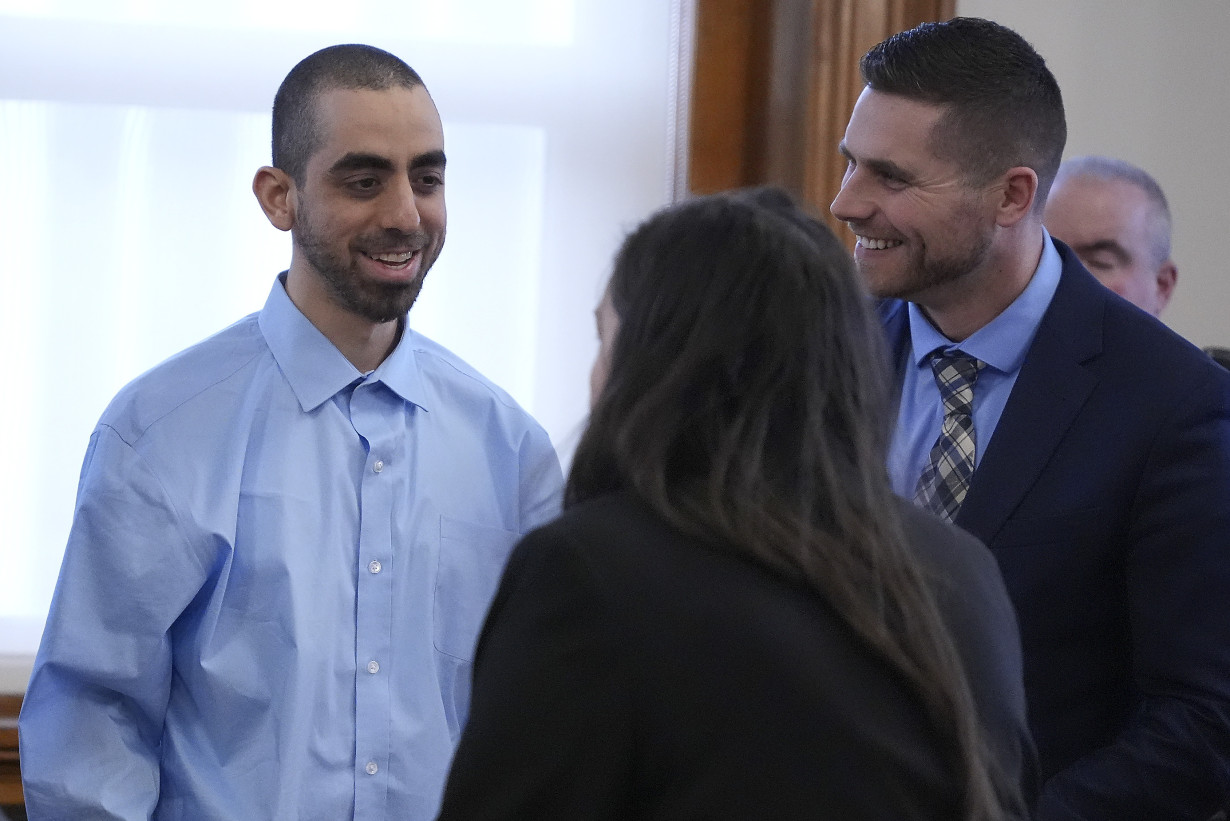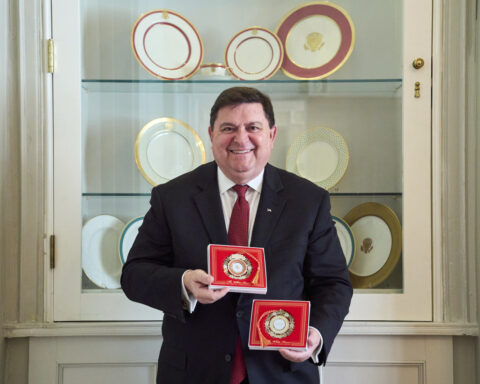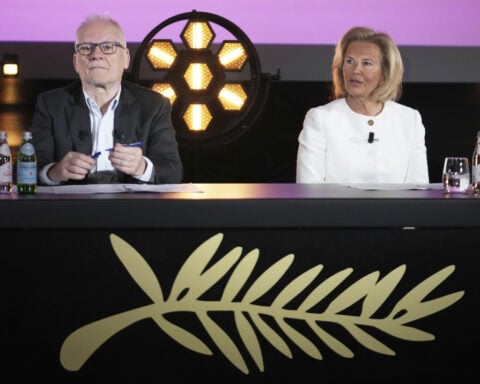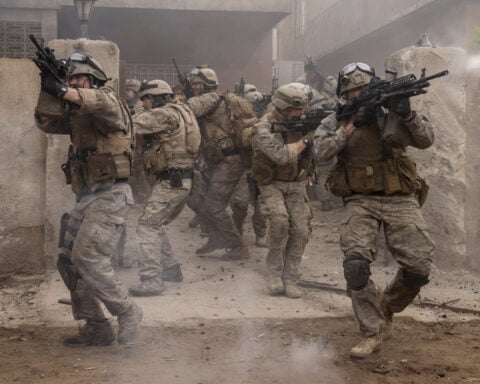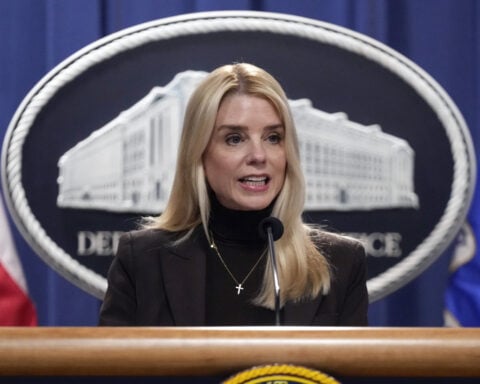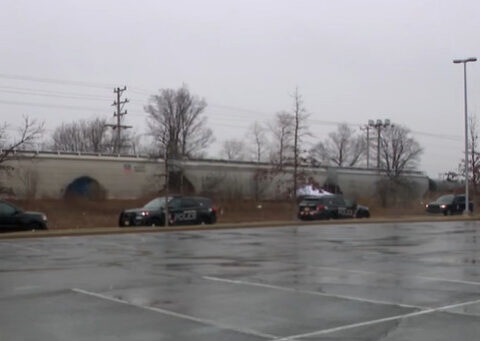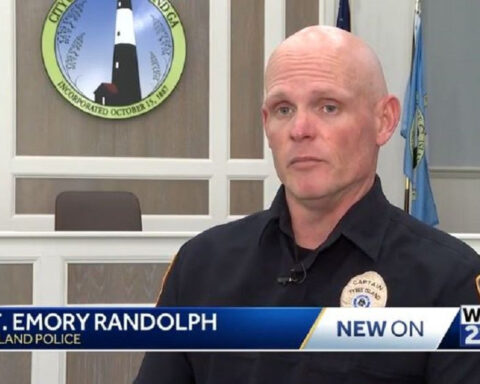MAYVILLE, N.Y. (AP) — With a mix of humor and graphic detail, Salman Rushdie calmly told a jury Tuesday about the frenzied moments in August 2022 when a masked man rushed at him on a stage in western New York and repeatedly slashed him with a knife, leaving him with terrible injuries.
“It occurred to me that I was dying. That was my predominant thought,” the renowned author said, adding that the people who subdued the assailant likely saved his life.
Just a short drive from where the attack at the Chautauqua Institution occurred, Rushdie took the stand during the second day of testimony at the trial of Hadi Matar, 27, who has pleaded not guilty to attempted murder and assault in the attack, which also wounded another man.
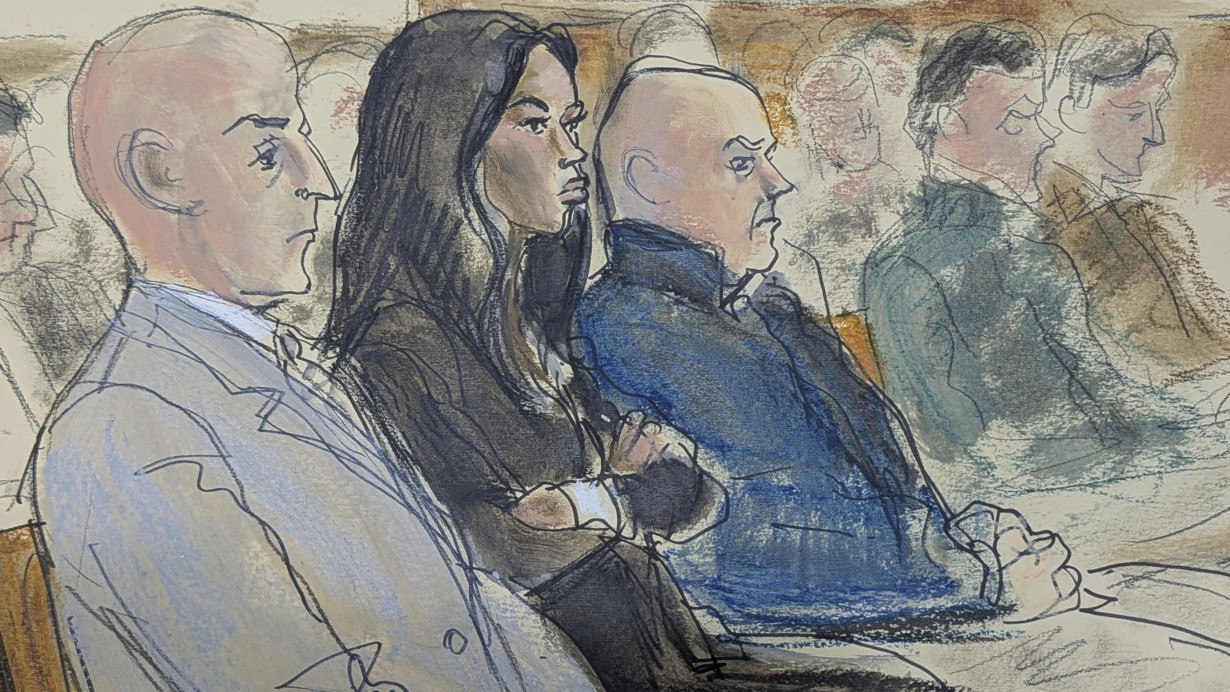
It was the first time since the stabbing that the 77-year-old writer found himself in the same room as Matar, whom Rushdie refused to even name when he looked back on the day in his 2023 memoir, “Knife.” The book called him “the A,” as in assassin, or assailant or asinine.
In the memoir Rushdie imagined a conversation with his assailant, fabricating a dialogue — a strained attempt at understanding — they might have had should the two ever speak.
But on Tuesday they hardly seemed to acknowledge each other. Rushdie on occasion looked off to his right, where the defendant sat some 20 feet (6 meters) away, but showed no sign of recognition. Matar, with attorneys on either side, rarely raised his head while Rushdie spoke.
District Attorney Jason Schmidt did not ask Rushdie to identify Matar. Rushdie testified that he got just a brief look at the man who rushed across the stage and stabbed him repeatedly with a 10-inch (25 centimeter) knife.
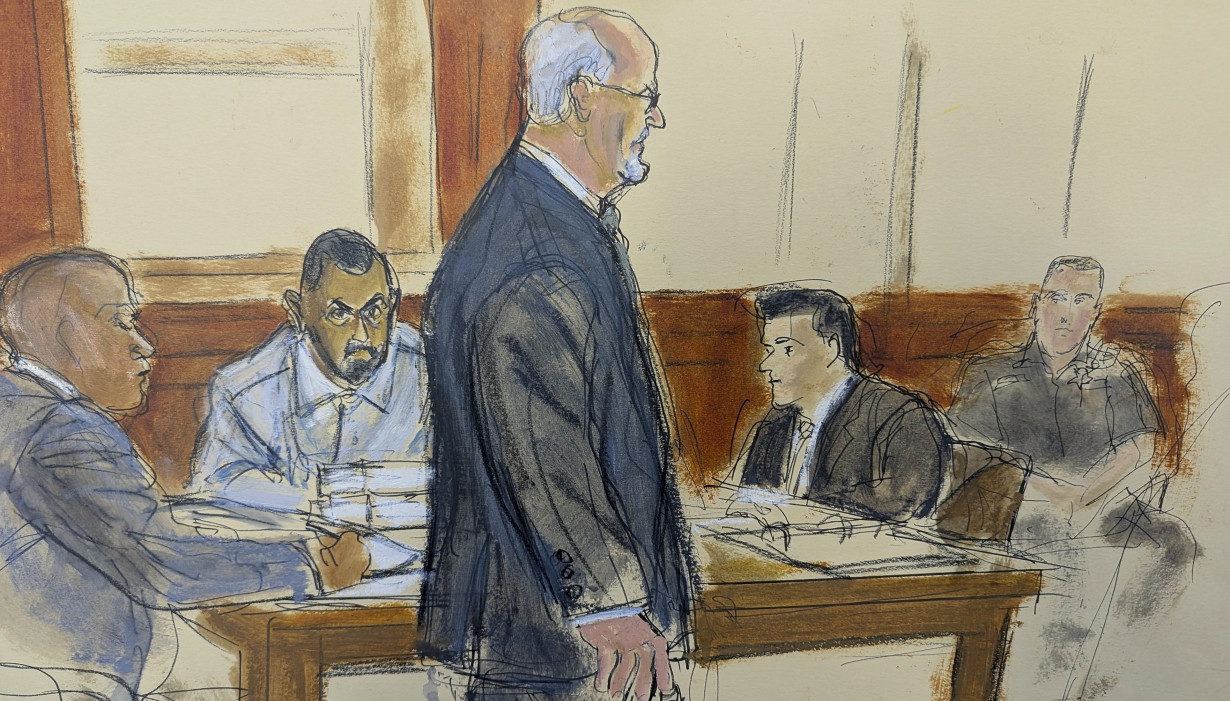
In testimony stricken from the record at the defense’s request, he added: “I was very struck by his eyes, which were dark and seemed very ferocious.”
Rushdie said he first thought his attacker was striking him with a fist. “But I saw a large quantity of blood pouring onto my clothes,” he said. “He was hitting me repeatedly. Hitting and slashing.”
The testimony came just ahead of the 36th anniversary of the day — Feb. 14, 1989 — that Rushdie has ruefully referred to as the worst possible Valentine’s Day, when Iranian leader Ayatollah Ruhollah Khomeini issued a fatwa calling for his death because of the supposed blasphemy in his novel “The Satanic Verses.”
Rushdie spent years in hiding, a wrenching adjustment for an otherwise engaging and sociable man. But after Iran announced that it would not enforce the decree, he had traveled freely over the past quarter century, and security lightened to the point where his Chautauqua talk was announced months in advance.
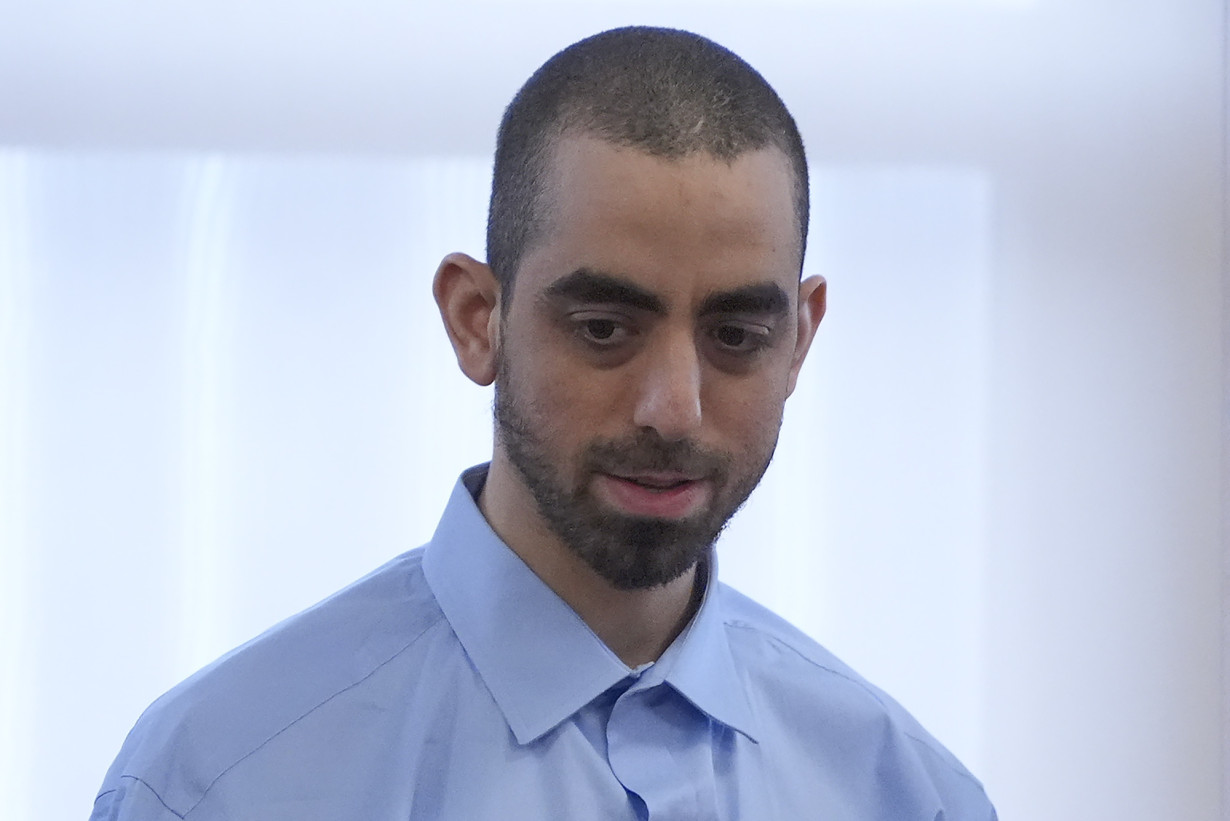
Several law enforcement cars were in front of the courthouse Tuesday morning, and security was also present on the rooftop of the jail across the street.
Matar is a dual Lebanese-U.S citizen, born in the U.S. to immigrants from Yaroun in Hezbollah-dominated southern Lebanon near the Israeli border, according to the village’s mayor. In a jailhouse interview with the New York Post, he did not refer directly to “The Satanic Verses” but called Rushdie someone “who attacked Islam.”
On the trial’s first day, Mahar calmly said “Free Palestine” while being led into the courtroom. On Tuesday he said in a dull chant, “From the river to the sea, Palestine will be free.”
The trial is expected to last around two weeks.
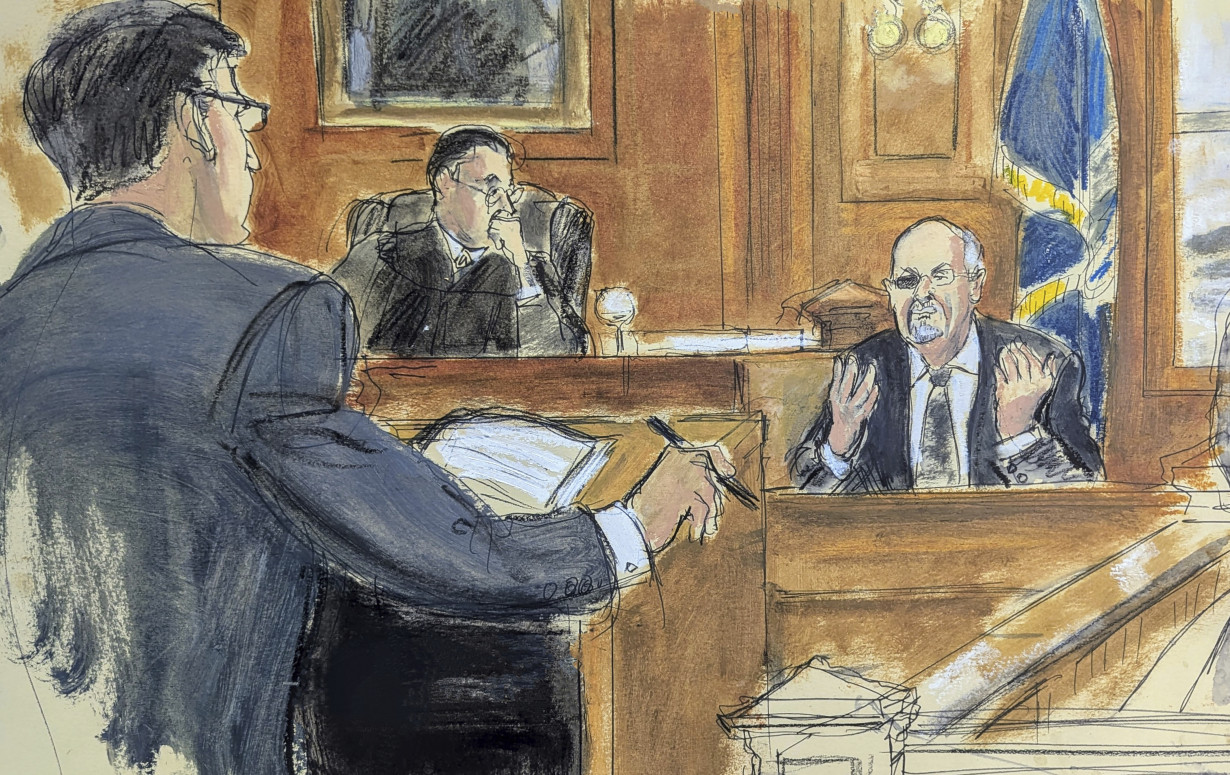
In a separate indictment, federal authorities allege that Matar was driven to act by a terrorist organization’s 2006 endorsement of the fatwa. A later trial on federal terrorism charges will be scheduled in U.S. District Court in Buffalo.
Rushdie, dressed in a plain, dark suit, spoke in an even, mild tone, even when recounting how he lay in a “lake” of blood. He briefly bared to the jurors his now-blinded right eye, usually hidden behind a darkened eyeglass lens.
Born in India, raised in Britain and now a U.S. citizen, Rushdie is a Booker Prize-winning author who has been famous worldwide since “Midnight’s Children” was published more than 40 years ago. He has long been known for his eloquence, candor and wit that can surface in unexpected moments.
Under direct examination Rushdie spoke of undergoing painful surgery to seal the lid of his blinded eye. He turned to the jurors, and joked, “I don’t recommend it.”
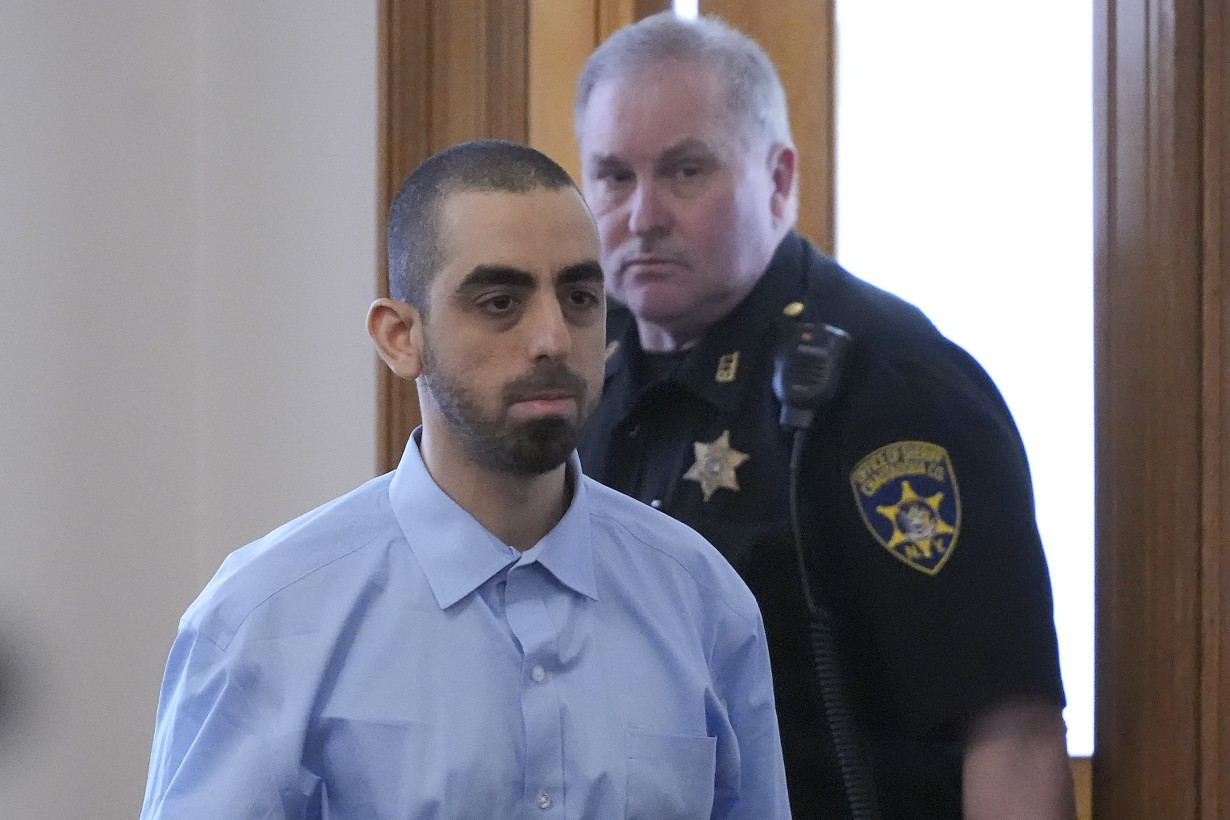
Under cross examination from public defender Lynn Schaffer, who challenged his memories of the attack, he acknowledged that it was hard to say precisely how many times he was stabbed: “I wasn’t counting at the time. I was otherwise occupied.”
Rushdie spent 17 days at a Pennsylvania hospital and more than three weeks at a New York City rehabilitation center, where he relearned basic skills like squeezing toothpaste from a tube. He detailed his months of recovery in “Knife.”
“I think I’m not quite at 100%. I think I’ve substantially recovered, but it’s probably 75% to 80%,” Rushdie testified. “I’m not as energetic as I used to be. I’m not as physically strong as I used to be.”
Rushdie's wife, Rachel Eliza Griffiths, sat in the second row in the courtroom. In 2022 she took an emergency private flight to be at his side after being told he was unlikely to survive, and he dedicated a chapter of his book to her.
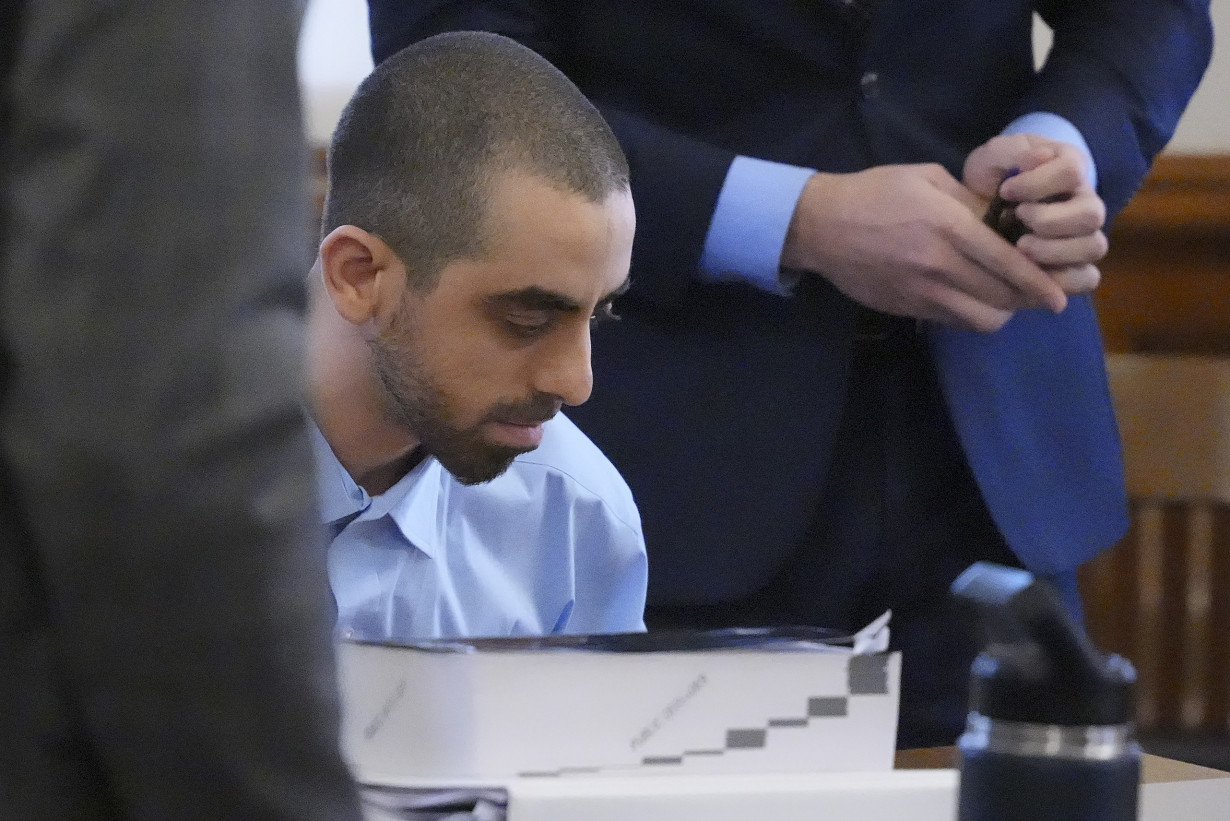
Griffiths cried at times, fanning herself and gripping the hand of a friend sitting beside her. As Rushdie left the room after his testimony, she smiled warmly at him and clasped her hands across her chest.
___
Associated Press writer Dave Collins in Hartford, Connecticut, contributed.

 Trump has begun another trade war. Here's a timeline of how we got here
Trump has begun another trade war. Here's a timeline of how we got here
 Canada's leader laments lost friendship with US in town that sheltered stranded Americans after 9/11
Canada's leader laments lost friendship with US in town that sheltered stranded Americans after 9/11
 Chinese EV giant BYD's fourth-quarter profit leaps 73%
Chinese EV giant BYD's fourth-quarter profit leaps 73%
 You're an American in another land? Prepare to talk about the why and how of Trump 2.0
You're an American in another land? Prepare to talk about the why and how of Trump 2.0
 Chalk talk: Star power, top teams and No. 5 seeds headline the women's March Madness Sweet 16
Chalk talk: Star power, top teams and No. 5 seeds headline the women's March Madness Sweet 16
 Purdue returns to Sweet 16 with 76-62 win over McNeese in March Madness
Purdue returns to Sweet 16 with 76-62 win over McNeese in March Madness
